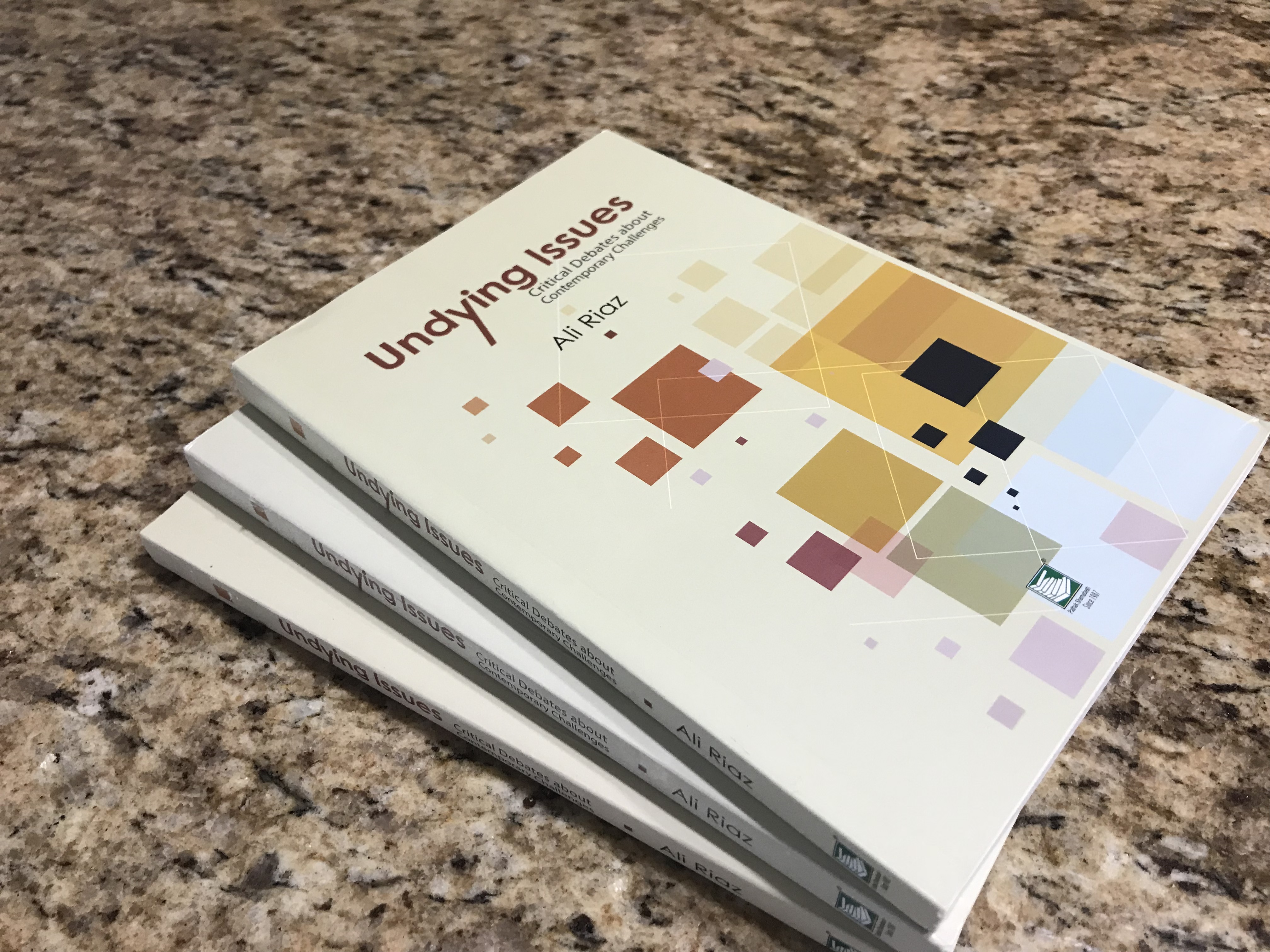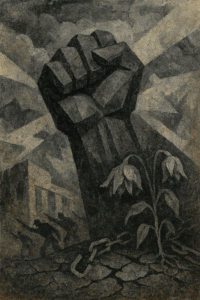
This post has already been read 20 times!
Is there a relationship between governance, secularism and the appeal of religion as a political ideology in South Asia? The question is seldom explored, particularly at the normative level. It is my contention that there are intrinsic connections between these aspects, although dominant discussions on these issues continue to ignore this association.
Since the 1980s, ‘governance’ has become a household concept, often replacing the term government yet it has remained ambiguous. Most of the discussions on governance, among academics and policymakers alike, unfortunately have long avoided a key element – the capacity of the state. Notwithstanding the differences on how to operationalize the concept of state capacity, there seems to have been an agreement that three aspects of state capacity – administrative, extractive and coercive capacity – are essential for a state to function. This notion of statehood derives its sustenance from Max Weber’s classic definition of the state which has situated the ‘monopoly of violence’ at the core of statehood. Although the coercive capacity of the state is the most palpable indicator of the ‘monopoly of violence’, this is not the only capacity which rests on violence; instead potential violence looms large for two other capacities. Weber’s assertion in 1918 that ‘today the relation between the state and violence is an especially intimate one’ is more relevant now than ever before, but the extant notion of governance seldom refers to, let alone discusses, the coercive capacity of the state.
Are these three capacities enough for a state to govern? I argue that they are necessary, but not sufficient, for effective governance in a modern state. State is neither only a combination of institutions nor only a concentration of authority, but is also an agency of hegemony/domination, an aspect that received less than due attention to date in the discussions on the state. Weber wrote ‘the state is a relation of men dominating men, a relation supported by means of legitimate (i.e. considered to be legitimate) violence. If the state is to exist, the dominated must obey the authority claimed by the powers that be’ (Max Weber, From Max Weber: Essays in Sociology. London: Routledge, 1991). Weber has made clear distinctions between two kinds of control: Macht (Power) and Herrschaft (Domination), and argued that domination rests on inner justification and external means. The inner justification, which makes one obey, is legitimation, while Macht is the blatant use of violence. An ideal state cannot always use force for compliance/obedience; instead its claim to legitimacy is what promotes voluntary compliance. The legitimacy results from the ‘legitimation system’ that prompts mass support for policies. I insist that legitimation capacity of the state should not only be considered as one of the capacities but also underscored as the key capacity of the state.
The success of the state in producing and reproducing an ideology and narratives which make ‘an acceptance of the state’s rules of the game, its social control, as true and right’ (Joel S Migdal, Strong Societies and Weak States: State-society relations and state capabilities in the Third World. Princeton: Princeton University Press.1988:33), or hegemonic, helps the state to extract material and political resources easier.
Among the ideologies that provide legitimacy to the modern liberal state, secularism has been the most influential. In common perception and discussions, secularism is understood as a separation between state and religion. This is not to say that there have not been other legitimizing ideologies. Of course, there have been but even a cursory look at the nature of states worldwide and discussions on the history of state formation show that, save a few exceptions, secularism has been taken for granted as a defining feature of a modern liberal state. The unstated assumption has been secularism should be and has been the project of the state.
The relationship between state and secularism, that is ‘absence or obsolescence of religion’, can be traced back to twin historical developments: state building experiences in Europe and the tradition of the Enlightenment. But the understanding – that the concept of secularism is value free, that secularism is an unmutated concept, that there is single trajectory of religion and state relationships – is being challenged and different perspectives are emerging because of changes in the global political landscape and tenuousness of earlier normative assumptions. In the words of Jose Casanova, ‘Rather than being the residual category, as was originally the case, the secular appears now as a reality, tout court, while the religious is increasingly perceived not only as the residual category, but also as a superstructural and superfluous additive, which both humans and societies can do without (Jose Casanova ‘The Secular, Secularizations, Secularisms’, Craig Calhoun, Mark Juergensmeyer and Jonathan VanAntwerpen, ‘Introduction’, Rethinking Secularism, New York: Oxford University Press. 2011, 55).Thus, it is necessary to accept that secularism is a contested and contestable concept.
The critique of secularism in the past decades stems from, among others, the perceived failures of secularism as a statecraft principle. Consequently, religion has emerged as counter-ideology, and religio-political forces are succeeding in appealing to a large segment of the society in various parts of the world. Often these forces are erroneously labelled as ‘fundamentalists’ and descriptions of the trajectory of their rise obfuscate the causes of and conditions for the emergence of the rise of religion as a political ideology.
My objections to the term ‘fundamentalists’ are three-fold: first, the term fails to address the political aspect of the activism with which we are concerned. One can easily refer to any religious movement as fundamentalism, even when it lacks a political agenda. The genesis of the term itself bears that out. The revivalist movement of U.S. Protestant churches in the 1920’s, which was first referred to as fundamentalist, was by no means a political activist movement. The etymology of the term fundamentalism- which means “return to fundamentals” – adds another level of complexity when dealing with any religion, because all religions have always been characterized by observance of fundamental principles. Taking cognizance of this, one might say that all Muslims are fundamentalists regardless of whether they take part in any activism, political or otherwise. Yet the fact remains all Muslims are not fundamentalist in the sense that they believe that religious scriptures should exclusively guide their behaviors. Furthermore, they do not, by any means, subscribe to any specific interpretation of the scriptures. My second objection to the term deals with its accusatory tone and pejorative nature. In agreement with Mark Juergensmeyer, I feel that ‘it reflects our attitude toward other people more than it describes them’. The third objection involves the priority of extant religio-political groups. The defining characteristics of fundamentalists – that they are concerned first with the erosion of religion and its proper role in society – is conspicuously absent. Fundamentalists, in their efforts to address the problem of the erosion of religion, call for spiritual and cultural renewal and urge specific courses of action to improve the social and political conditions of the coreligionists whereas those who adopt religion as a political ideology are more concerned with the state and political power.
Discussions about relationships between religion and politics need to make a distinction between religion as a faith and religion as an ideology, which I have alluded to in my objection to the term ‘fundamentalists.’ Ashis Nandy operationalized these two elements: religion as a faith means ‘religion as a way of life, a tradition which is non-monolithic and operationally plural’ and religion as an ideology means ‘religion as a sub-national, national or cross-national identifier of populations contesting for or protecting non-religious, usually political or socio-economic interests.’ ‘One way of explaining the difference between the two is to conceive of ideology as something that, for individuals and people who believe in it, needs to be constantly protected, and faith as something that the faithful usually expect to protect them’ (Ashis Nandy. Time Wraps: Silent and Evasive Pasts in Indian Politics and Religion, New Brunswick, NJ: Rutgers University Press.62-3).
Religion as a faith has been present in all societies for more than a century but what we have experienced in the past decades is the transformation of religion as an ideology. In South Asia religion has become appealing to large number of people as a political ideology. The contemporaneous developments in South Asia shouldn’t be seen as an aberration but must be located within the longer historical context – there are historical antecedents; that failure of secular liberal states in South Asia to deliver developmental goods and services has delegitimized the states and ruling blocs, consequently engendered an environment within which religion has appeared as both an ideology of the ruling class and as a counter-hegemonic project; and that the appeal of religious identity is a result of ontological insecurity and existential uncertainty faced by individuals as a result of the pace and nature of globalization in recent decades. These factors are both global, and specific to the countries of South Asia.
Those who adopt religion as an ideology are not limited to any religion, and within each religious tradition there are various strands of forces who instrumentalize religion as ideology. It is undeniable that secular state’s performance has implications for the rise of religion as a counter hegemonic ideology and religio-political force posing a challenge to the state.In 1994, Mark Juergensmeyer argued that, ‘In many parts of the world [the] secular state has not lived up to its own promises of political freedom, economic prosperity, and social justice’ (Mark Juergensmeyer, Mark. The New Cold War? Religious Nationalism Confronts the Secular State.
California: University of California Press.1994, 23). We can say that the lack of performance legitimacy of the ruling elites (that is, the inability of the secular elites to deliver common goods); the brutal authoritarianism that results in an erosion of the civil society and hence leaves the religious centers (e.g., mosque, temple, church) as the only viable public space; uneven economic development including urbanization; rupture in the hegemony of secularist politics; and the politics of expediency of secular parties, are pivotal in the global rise of religio-political forces and religion as a political ideology.
An authoritarian system of governance has remained the defining feature of many countries in North Africa, West Asia, and South Asia for decades. Countries such as Algeria, Egypt, Iraq, Syria, Sudan as well as Pakistan, Bangladesh, Sri Lanka, Nepal can be cited as examples. Non-realization of the democratic aspirations of the people mark the history of these countries. These failures have delegitimized the states and the ruling elites. As the ruling elites no longer enjoy hegemony over the masses, state’s legitimation capacity has diminished conflicting tendencies have emerged within these societies. On the one hand, the ruling elites resort to various means to continue their hold over power; while religio-political forces attempt to demonstrate that failure is inherently connected to the secularist liberal ideology. In the absence of a hegemonic ideology, religion becomes a candidate to fill the vacuum.
Therefore, understanding the rise of religio-political forces in any society, particularly in South Asia, requires exploration of the relationship between governance, especially the legitimation capacity of the state, the inability of the current interpretation of secularism to act as the legitimizing ideology and the emergence of religion as counter-hegemonic ideology.
(This essay is an excerpt of Ali Riaz’s recently published book, ‘Undying Issues: Critical debates about Contemporary Challenges’ (Pathak Samabesh, 2018), appeared in The Daily Observer, April 25, 2018)
This post has already been read 20 times!





